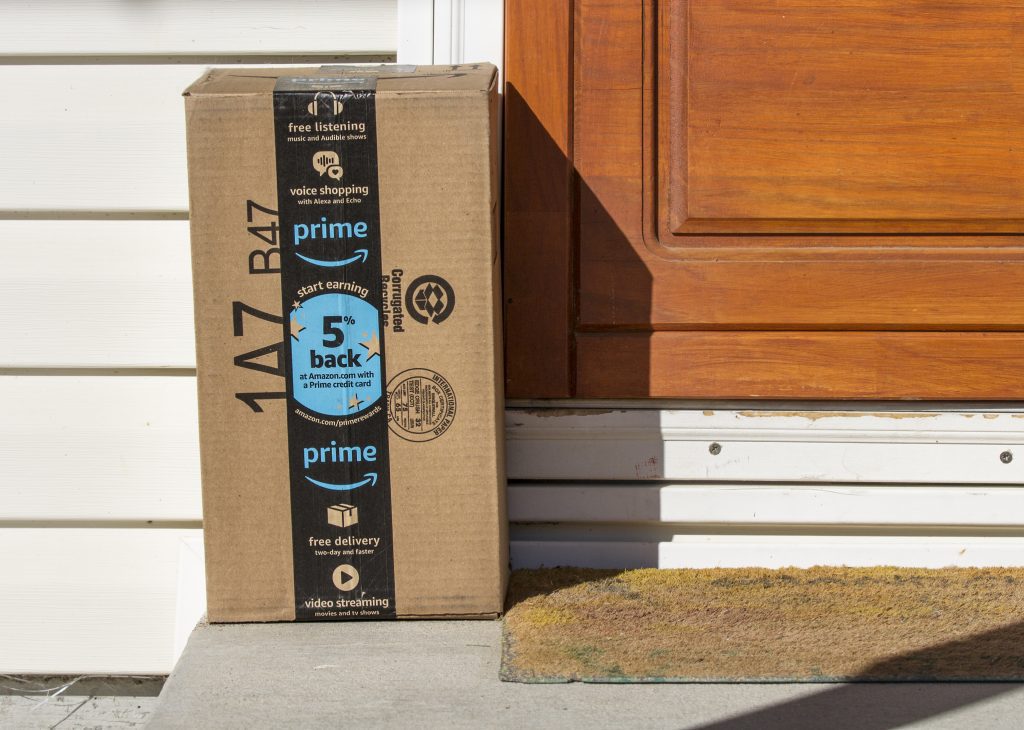Amazon is an extremely popular online marketplace. It has become the world’s largest online retailer, with small and medium-sized businesses selling an average of 4,000 items per minute. In September 2019 alone, 150.6 million mobile users accessed the Amazon smartphone app and the company brought in $125.6 billion in sales revenue in Q4 2020. It’s important for all e commerce brands to have an Amazon marketing strategy.
That’s a huge audience and it means a lot of potential for your business. But for small business owners who don’t know much about Amazon marketing, it can be intimidating to figure out where to start.
Here are some actionable tips and insights you can start implementing today to help you establish your Amazon business strategy and get more out of the millions of visitors and dollars spent on Amazon products.
Amazon SEO and A+ Content Strategy Why Keyword Research Is So Important
Keywords are the cornerstone of any good Amazon SEO strategy. They are one of the main ways to drive the traffic you want to your Amazon product page. That’s why it’s critical to research and include the most relevant terms and phrases that your target audience may be searching into your product page. This will help determine how high you rank within the website’s internal search engine for targeted keywords.
 Use Amazon Seller Central or Helium 10 to Find Good Keywords
Use Amazon Seller Central or Helium 10 to Find Good Keywords
There are a couple of different ways to find the best keywords for your target audience. The best ones for Amazon marketing are Amazon Seller Central and Helium 10. By using the keywords in these two resources, you’ll improve your click through rate, increase your conversion rate and improve your sales.
Amazon SEO: Optimize for Keywords and Text of Your Product Listing
When you’re writing your product listing itself on Amazon, here are some tips to keep in mind:
- Your title shouldn’t contain any symbols or emojis
- Your title should be 150+ characters long
- Include 5+ bullet points in the “About Product” section
- Make sure each bullet point is 150+ characters long
- Capitalize the first letter of each bullet point
- Don’t use all caps in your bullet points
Amazon A+ Content
Show your content in the best light possible with Amazon’s A+ Content feature. It will help you describe your product features in a unique way by including a brand story, enhanced images and test placements. It also makes your product page look more trustworthy and professional while also resulting in higher conversion rates, increased traffic and improved sales.
Here are some tips to keep in mind when using Amazon A+ Content:
- Write 1,000+ characters in the description
- Use a 1,000 x 1,000 pixel image
- Your main image should be on a white background
- Be sure to include 7+ images
- Include video(s)
Amazon PPC Strategy
Amazon’s sponsored ad program is very similar to the pay-per-click (PPC) options offered by other social media platforms that’s based on an auction. Vendors and sellers set their daily ad budget for key terms they’re targeting. The more a vendor or seller is willing to bid on a term, the more likely it is that their ad will show up when a customer types in that word.
Amazon does have a leg up on other platforms that offer PPC advertising, however. Given the nature of the website, the people typing in the search terms are primed to purchase. They’ve come to Amazon looking to buy a product. This means that you’re much more likely to convert a customer that is in the market to buy a product that relates to their search term.
 PPC Ad Types
PPC Ad Types
When it comes to PPC ads, there are several different options that Amazon offers. You can purchase Sponsored Product Ads. These ads might be shown at the top, beside or within shopping results and on product pages and it will likely be placed next to several other Sponsored Product Ads that show up in these areas.
You can also bid on Headline Search Ads. These are displayed at the top of the customer search results page above the organic results from the customer’s keywords. As opposed to the Sponsored Product Ads, the Headline Search Ad extends across the entire page and there is the only one that will show up in that area.
The third and final PPC ad type for Amazon is the Sponsored Display Ads. These generally appear on the homepage, search results page, product detail pages and third-party websites. They can help you reach a target demographic that is interested in your product and uses Amazon to make purchases. It allows you to retarget customers who previously viewed your products as well as target new customers, all while keeping your products top of mind as your customer visits other websites.
Why Amazon PPC?
Amazon PPC ads have many advantages that can help your business level up brand awareness and sales. It can help you increase product sales, create brand awareness for new products and boost organic rankings for highly competitive keywords. It can also boost awareness of seasonal trend products and help your business beat the competition.
Amazon Social Media Marketing Strategy
Like most modern marketing strategies, social media is an essential ingredient to success. Social media marketing can help boost your brand awareness and Amazon sales. Depending on your industry and your target audience, it may make more sense to use certain platforms as opposed to others.
Many sellers on Amazon only have a Facebook or Instagram account to answer questions or share on-brand images and content. However, a good social media strategy should include posts that inform your customers about your brand and encourage them to follow your account for updates about new products, information or sales.
Plus, try publishing posts related to Amazon events like Black Friday, Cyber Monday or Prime Day. It will keep your customers up to date and help them gather as much information as they can before making a purchase. It will also help them learn more about your brand and feel a connection to your business.
 Instagram
Instagram
As mentioned above, most brands understand the importance of Instagram for their business. This image-centric platform can be used to increase brand reach and show your top products and their value in their best light. It’s also a great place to partner with influencers who can show how the average person may use your product and highlight its advantages. Keep in mind that Instagram users tend to be younger, with about 62% of users aged 18-34 years old.
With about 2.9 billion monthly active users, Facebook is the most popular social media platform in the world. This makes it a must when it comes to your brand’s social media strategy. You can use the platform to highlight products, offers and discounts to encourage sales. For example, it’s likely a good idea to promote holiday gift ideas on your Facebook page between November and Christmas.
While it has fewer active users than Instagram or Facebook, Twitter users are very engaged. The micro-blogging social media is an excellent way to promote links to blog content on your website and show off your product offerings. This establishes you as a thought leader and keeps you top of mind, while encouraging users to visit your website.
Pinterest is the least popular of all the social media platforms mentioned so far, but it should certainly not be taken for granted. Pinterest users often log in to the platform looking for purchase ideas and hoping to get recommended products. This is highly valuable for Amazon vendors and sellers. So when you post to Pinterest, make sure to include a link to the appropriate Amazon product URL to capture sales.
Social Media Key Tips
For a successful social media marketing campaign it’s important to use the right platforms for your brand voice and your target demographic. Make sure to maintain your unique tone of voice across all platforms to solidify your brand and use compelling visuals.
It’s also a good idea to show your audience the people behind your brand. Social media is a great way to pull back the curtain and highlight the faces at your company to create a more personal connection with your customers.
To be successful with your social media strategy, it’s useful to establish a content calendar. This will help you plan out your posts in advance, keep you on track and encourage you to post regularly. It will also help you plan around specific events like holidays or key sales periods like back to school season.
Finally, it’s incredibly important to measure your social media performance. Common metrics include click-through rate (CTR), conversion rate, likes, comments and mentions.
Amazon Marketing Pricing Strategy
The price of your products plays an important role in your marketing and competitive strategies. It dictates how much you’ll sell and how much profit you make off each sale. Setting the wrong prices for your products will ensure your Amazon marketing strategy fails.
If you set your prices too high, it will be hard to attract and retain customers, limiting your sales. However, if you set prices too low, you’ll be losing out on profits and it may be hard to fulfill all your orders. Plus, it will be difficult to raise prices further down the road.

To make sure you’re setting the right pricing:
- Look at competitor pricing
- Reprice your products to undercut the competition
- Use Amazon Seller to automatically reprice your products
If you’ve already priced your Amazon products but you’re finding you’re either selling more than you can handle or less than you’d like to, you may want to consider an Amazon repricing strategy based on the factors listed above.
Amazon Review Strategy
Social proof is an incredibly powerful tool when it comes to marketing products for your business. People want to know what other people think about your product. In fact, 72% of Amazon shoppers only take an action once they’ve read reviews for a product they’re looking for.
If you get more positive Amazon reviews, you’ll get more sales. What’s more, Amazon reviews also have an impact on your products’ Buy Box performance, which affects your listings’ visibility to potential customers.
To get more positive review, you can:
- Ask for product reviews from customers via direct outreach
- Make sure you offer excellent customer service
- Regularly offer promotions and discounts to keep customers happy
- Launch products with Amazon Early Reviewer Program
- Recommend product review in product insert
Amazon Direct Marketing Strategy
If you’re looking to take your Amazon marketing to the next level, you could also try an Amazon direct marketing strategy that includes the use of emails, text messages, phone calls, sales offers or newsletters. It takes more effort, but it can help you cultivate loyal customers and create a connection with your audience outside of Amazon.
Amazon Analytics Strategy
Analytics are an essential component of any Amazon marketing strategy. Amazon offers brand owners a look at key metrics related to customer behaviour, search terms, competitors and advertising campaigns. These insights can greatly help your brand make the right decisions to improve your sales on Amazon. They include:
- Amazon Search Terms
- Item comparison
- Alternative purchase
- Market basket
- Repeat Purchase Behavior
Make sure to regularly monitor these analytics and adjust your strategy as needed.
You’re Ready to Sell On Amazon Strategically!
Your Amazon marketing strategy is crucial to hitting your target revenue goals. With the tips above, you should be well on your way to success. If you’d like to work with our team of experts to take your Amazon sales to the next level, reach out to us today!
The post 7 Core Pillars of an Amazon Marketing Strategy appeared first on Digital Marketing Blog by Elite Digital.
Source link



